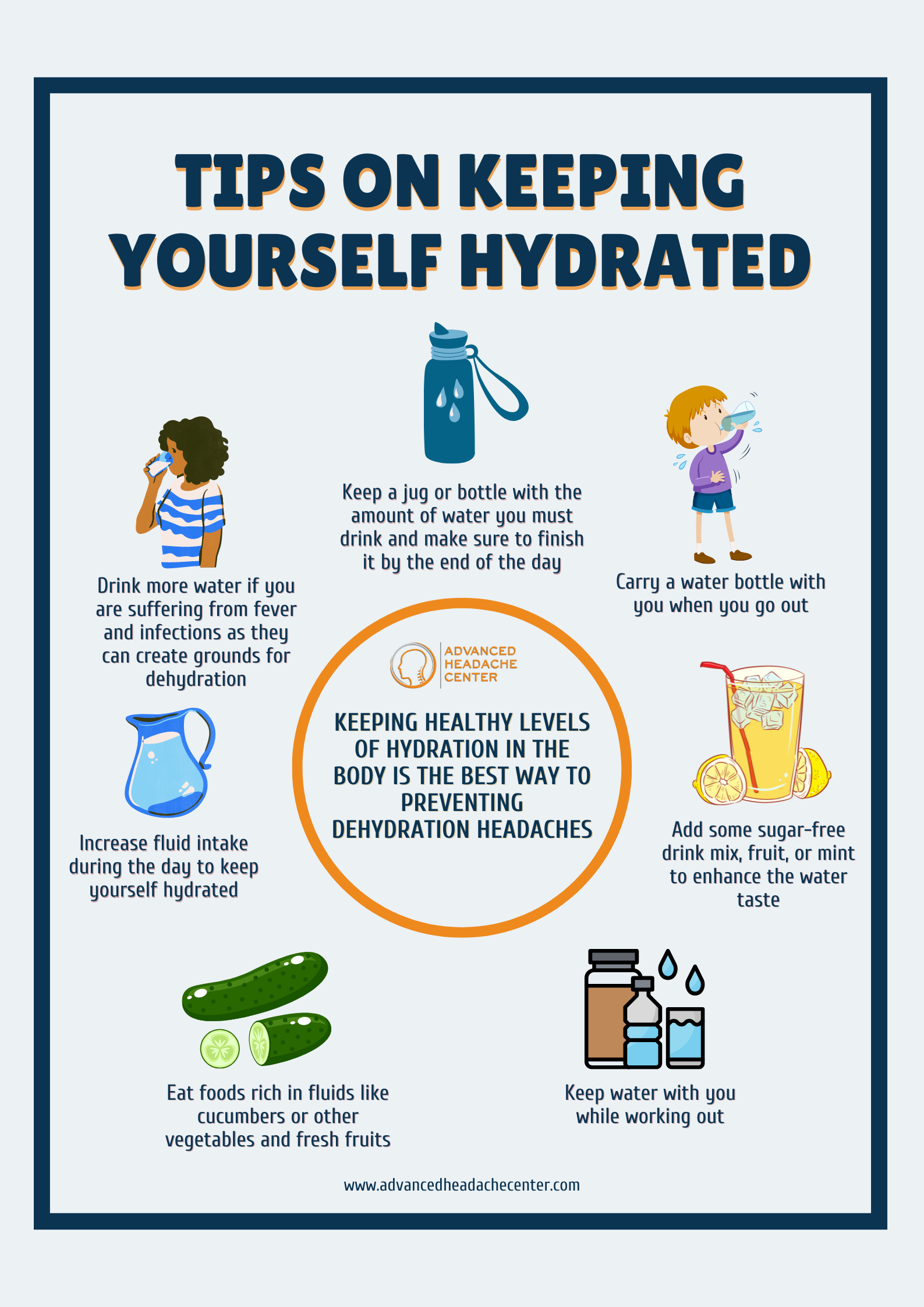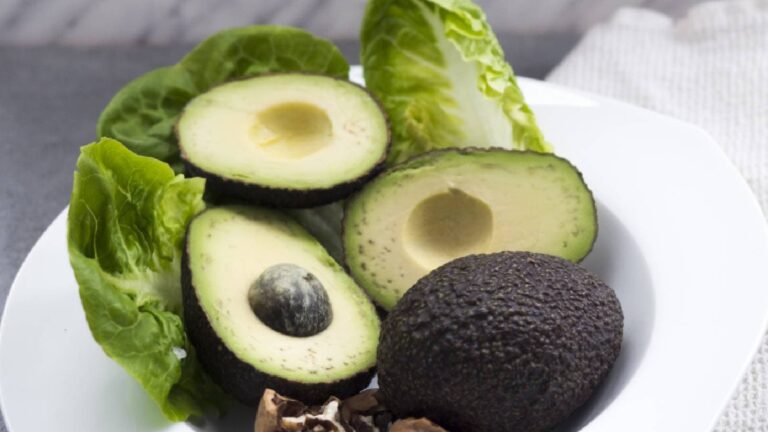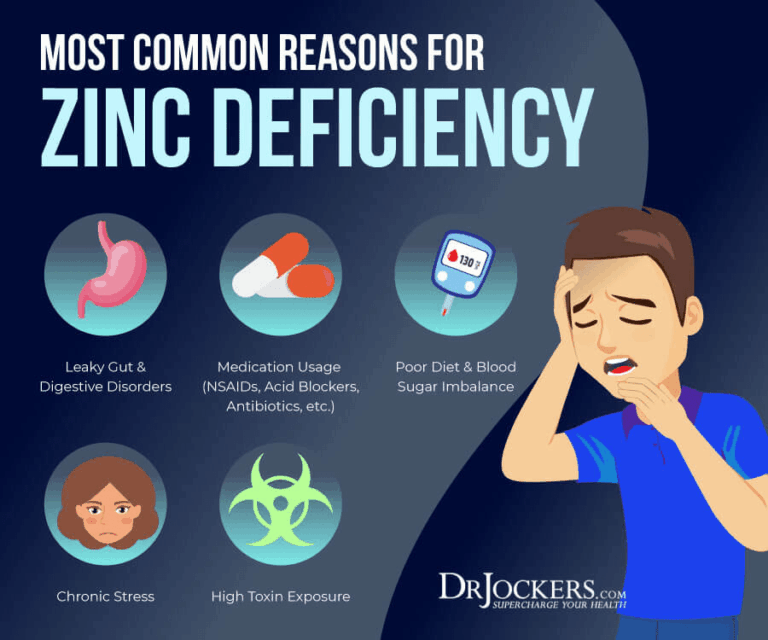Water, Not Pills: The Ultimate Natural Remedy for Dehydration Headaches
The throbbing begins subtly, a dull ache behind the eyes, a whisper of discomfort that escalates into a relentless drumbeat against the skull. For many, this familiar torment heralds an immediate reflex: the reaching hand, the foil packet, the glass of water (often as an afterthought to aid swallowing). In our modern world, where a pill promises swift oblivion from every discomfort, the headache has become an almost automatic trigger for medication. Yet, amidst the myriad causes of head pain, one stands out for its profound simplicity and its equally simple, natural remedy: the dehydration headache.
This is not merely an article; it is an invitation to a journey of rediscovery, a deep dive into the body’s most fundamental needs, and a powerful argument for reclaiming agency over our health. For the discerning, knowledgeable reader, we will peel back the layers of societal conditioning, explore the intricate physiology of the brain and its dependence on hydration, and ultimately champion the most ancient, accessible, and often overlooked elixir: water itself.
The Dehydration Headache: A Misunderstood Malady
Before we delve into the solution, let us first understand the adversary. The dehydration headache is a stealthy foe, often mimicking other, more complex forms of head pain. It can manifest as a dull ache, a pulsating throb, or even a band-like pressure around the temples. It frequently worsens with movement, bending over, or coughing. Accompanied by other tell-tale signs like fatigue, dizziness, dry mouth, reduced urination, or even irritability, it paints a clear picture of a body in distress.
The insidious nature of the dehydration headache lies in its ability to blend in. Is it a tension headache from a stressful day? Perhaps an early-stage migraine? The immediate assumption often leans towards neurological or muscular tension, prompting the grab for an ibuprofen or acetaminophen. This reflex, while understandable in a pain-averse society, often masks the true culprit, delaying genuine relief and perpetuating a cycle of symptomatic treatment rather than root-cause resolution. We have become so accustomed to outsourcing our healing to pharmaceutical compounds that we have forgotten the profound wisdom of our own physiology, and the simple, elegant solutions it often demands.
The Silent Thief: How Dehydration Hijacks Your Brain
To truly appreciate the power of water, one must first grasp the intricate dance between hydration and brain function. Our brains, those magnificent command centers, are approximately 75% water. This isn’t just passive content; it’s an active, essential component that facilitates everything from nerve signal transmission to waste removal. When the body’s overall fluid levels drop – even by as little as 1-2% of body weight – a cascade of physiological events is triggered, directly impacting the delicate environment of the brain.
Imagine your brain suspended within your skull, cushioned by cerebrospinal fluid. This fluid acts as a protective buffer, absorbing shocks and maintaining a stable internal environment. When you become dehydrated, your body prioritizes maintaining blood volume to ensure vital organs receive oxygen and nutrients. To achieve this, fluid is drawn from less critical areas, including the brain. This withdrawal of fluid causes the brain tissue itself to slightly shrink or contract.
This subtle shrinkage is not benign. The brain’s outer membrane, the dura mater, is rich in pain-sensitive nerve endings. As the brain subtly pulls away from the skull, it tugs on these sensitive meninges, stretching them and irritating the surrounding blood vessels. This mechanical irritation is a primary driver of the dull, throbbing pain characteristic of a dehydration headache. It’s akin to a tent losing tension, causing its fabric to pull uncomfortably at its anchor points.
Beyond the physical shrinkage, dehydration impacts cerebral blood flow. When fluid volume decreases, blood thickens slightly, and the heart has to work harder to pump it through the circulatory system. Blood vessels in the brain may constrict as a compensatory mechanism to maintain blood pressure, further reducing the efficient delivery of oxygen and nutrients and the removal of metabolic waste products. Conversely, sometimes dehydration can lead to a rebound dilation of blood vessels as the body tries to compensate, and this dilation itself can trigger pain receptors.
Furthermore, dehydration disrupts electrolyte balance. Electrolytes like sodium, potassium, and magnesium play crucial roles in nerve function and cellular communication. Even minor imbalances can impair neural activity, leading to symptoms like confusion, dizziness, and, of course, headaches. The intricate osmotic gradients that govern fluid movement in and out of cells become disturbed, affecting the delicate equilibrium required for optimal brain function.
Finally, a less efficient circulatory system means a less efficient waste removal system. Toxins and metabolic byproducts, which would normally be flushed away, can accumulate, contributing to inflammation and irritation within the cranial cavity. Each of these physiological shifts, individually and collectively, contributes to the symphony of pain that we recognize as a dehydration headache. It’s a distress signal from a system starved of its most fundamental resource.
The Siren Song of the Pill: A Temporary Truce
In the face of such discomfort, the siren song of the painkiller is almost irresistible. Non-steroidal anti-inflammatory drugs (NSAIDs) like ibuprofen or naproxen, and analgesics like acetaminophen, offer a promise of swift relief. They work by targeting specific biochemical pathways involved in pain and inflammation. NSAIDs, for instance, inhibit cyclooxygenase (COX) enzymes, thereby reducing the production of prostaglandins, which are compounds that promote inflammation, pain, and fever. Acetaminophen, while its exact mechanism is still debated, is thought to act primarily in the central nervous system to reduce pain signals.
And indeed, they often deliver on their promise, at least temporarily. The headache recedes, the throbbing subsides, and the daily grind can resume. But this relief comes at a cost, and it’s a cost often overlooked in our pursuit of instant gratification. The pill does not address the underlying cause of the dehydration headache. It merely mutes the symptom, silencing the body’s vital distress signal without replenishing the fluid deficit.
This masking effect can be dangerous. By dulling the pain, we might inadvertently prolong the state of dehydration, pushing our bodies further into a compromised state. Furthermore, the regular or excessive use of painkillers carries its own set of risks. NSAIDs can irritate the stomach lining, leading to indigestion, ulcers, or even gastrointestinal bleeding. Prolonged use can strain the kidneys and liver, organs already working overtime to filter waste and manage fluid balance. Acetaminophen, while generally safer for the stomach, carries a significant risk of liver damage if doses are exceeded.
Perhaps most insidiously, relying on pills for dehydration headaches can foster a psychological dependence. We become conditioned to reach for the bottle rather than pausing to listen to our bodies. This habit reinforces a mindset where external solutions are preferred over internal regulation, severing our connection to our innate physiological wisdom. It is a temporary truce, not a lasting peace, leaving the true enemy – dehydration – to continue its silent work.
Water: The Ancient Elixir, Rediscovered
Against this backdrop of complex physiology and pharmaceutical intervention, stands water – simple, clear, and profound. Water is not just a beverage; it is the fundamental solvent of life, the medium through which all biological processes occur. Its elegance lies in its simplicity, its power in its omnipresence. For a dehydration headache, water is not merely a remedy; it is the cure.
When you drink water, especially in a state of dehydration, its effects are immediate and systemic. The fluid is rapidly absorbed from the gastrointestinal tract into the bloodstream, where it begins its crucial work.
First and foremost, water directly addresses the cerebral shrinkage. As fluid levels normalize, the brain cells rehydrate, restoring their original volume. This re-expansion gently eases the tension on the dura mater, alleviating the mechanical irritation that causes the headache. The throbbing pain, often a direct consequence of this tension, begins to subside as the brain finds its comfortable, cushioned equilibrium once more.
Secondly, water restores optimal blood volume and viscosity. This allows the heart to pump blood more efficiently, ensuring a robust and consistent flow of oxygen and nutrients to the brain. Improved circulation also means a more effective removal of metabolic waste products, reducing any inflammatory compounds contributing to the headache. The compensatory constriction or dilation of blood vessels, which can be pain-inducing, normalizes, bringing relief.
Crucially, water helps to re-establish electrolyte balance. While severe electrolyte depletion may require more than just plain water (such as oral rehydration solutions), for typical dehydration headaches, adequate water intake helps to dilute overly concentrated electrolytes and allows the kidneys to excrete excess, bringing the body’s delicate internal environment back into homeostasis. This re-balancing is vital for optimal nerve function and overall cellular health.
Finally, the systemic benefits of hydration extend far beyond the immediate headache relief. Water aids in detoxification, joint lubrication, nutrient transport, and temperature regulation. By choosing water, you are not merely treating a symptom; you are nourishing your entire being, allowing your body to perform its intricate functions with the grace and efficiency it was designed for. It is a holistic approach, a gentle yet powerful intervention that respects and supports the body’s innate healing capabilities.
The Journey to Hydration: Practical Pathways
Embracing water as the ultimate remedy requires a conscious shift from reactive treatment to proactive prevention. It’s about cultivating a deeper awareness of our body’s signals and integrating hydration seamlessly into our daily lives.
Recognizing the Early Warning Signs: The body rarely yells without first whispering. Learn to interpret its subtle cues. Thirst is the most obvious, but often a late-stage indicator. Pay attention to urine color – pale yellow is ideal; dark yellow or amber indicates dehydration. Dry mouth, chapped lips, fatigue, irritability, and even difficulty concentrating can all be early indicators of insufficient fluid intake. A simple skin turgor test (gently pinching the skin on the back of your hand; if it doesn’t snap back quickly, you may be dehydrated) can also offer a quick assessment.
Proactive Hydration is Key: Don’t wait until you’re thirsty. Make hydration a consistent habit throughout the day.
- Start the Day Right: A large glass of water upon waking kickstarts your metabolism and rehydrates you after hours of sleep.
- Carry a Water Bottle: Make it your constant companion. Seeing it reminds you to sip, and having it readily available removes any barriers.
- Set Reminders: Use apps or alarms if you struggle to remember.
- Integrate with Meals: Drink water before, during, and after every meal.
- Before and After Exercise: Fluid needs increase significantly with physical activity.
- Environmental Awareness: Increase intake in hot weather, dry climates, or when in air-conditioned environments.
Beyond Plain Water (and its nuances):
- Filtered Tap Water: Often the most accessible and environmentally friendly choice.
- Sparkling Water: Can be a refreshing alternative, but be mindful of added sugars or artificial sweeteners in flavored varieties.
- Hydrating Foods: Don’t forget that fruits and vegetables are rich in water content. Cucumbers, watermelon, strawberries, oranges, and leafy greens are excellent sources.
- Electrolytes: When They Matter: While plain water is usually sufficient for typical dehydration, there are instances where electrolytes are crucial. During intense exercise, prolonged illness (especially with vomiting or diarrhea), or in very hot conditions, the body loses significant amounts of sodium, potassium, and other minerals. In these cases, simply drinking plain water can sometimes dilute the remaining electrolytes further, potentially leading to more severe issues. Oral rehydration solutions (ORS), coconut water, or homemade electrolyte drinks (water, a pinch of salt, a squeeze of lemon/lime, and a teaspoon of honey) can be beneficial. For the average person experiencing a dehydration headache from daily neglect, plain water is almost always the starting point.
Beyond the Headache: The Ripple Effect of Optimal Hydration
The benefits of prioritizing water extend far beyond merely staving off headaches. Optimal hydration is a cornerstone of overall health and well-being, creating a profound ripple effect throughout the body and mind.
Enhanced Cognitive Function: A well-hydrated brain is a sharper brain. Studies consistently show that even mild dehydration can impair concentration, memory, and mood. By maintaining fluid balance, you support clearer thinking, improved focus, and enhanced mental agility. The mental fog that often accompanies dehydration lifts, replaced by clarity and alertness.
Sustained Energy Levels: Fatigue is a common companion to dehydration. When your body is properly hydrated, your circulatory system works more efficiently, delivering oxygen and nutrients to your cells and removing waste products. This translates to more sustained energy throughout the day, reducing the reliance on caffeine or sugary drinks for an artificial boost.
Improved Mood and Emotional Stability: The link between hydration and mood is often underestimated. Dehydration can exacerbate feelings of irritability, anxiety, and even contribute to symptoms of depression. By keeping your body hydrated, you create a more stable internal environment, promoting emotional balance and resilience.
Glowing Skin and Healthy Hair: Water is essential for maintaining skin elasticity and a healthy complexion. It helps to flush toxins, transport nutrients to skin cells, and keep tissues plump and supple. Hydrated skin looks more radiant and is less prone to dryness and flakiness. Similarly, adequate hydration contributes to stronger, healthier hair.
Optimized Digestion and Metabolism: Water plays a critical role in the digestive process, aiding in the breakdown of food and the absorption of nutrients. It softens stool, preventing constipation, and facilitates the efficient movement of food through the digestive tract. A well-hydrated system also supports a healthy metabolism, helping your body convert food into energy more effectively.
Joint Lubrication and Flexibility: Water is a key component of synovial fluid, which lubricates our joints and helps to cushion bones. Staying hydrated can reduce joint friction and stiffness, promoting greater flexibility and comfort, especially as we age.
Enhanced Immune Function: A well-hydrated body is better equipped to fight off illness. Water helps transport immune cells throughout the body and aids in flushing out pathogens and toxins. It supports the lymphatic system, a crucial part of the immune defense.
Embracing water is not just about avoiding pain; it’s about unlocking a higher potential for vitality, resilience, and a profound sense of well-being. It is an investment in every facet of your health, yielding dividends that far outweigh the effort.
The Modern Dehydration Epidemic: Why We Forget
Given the profound benefits and the severe consequences of dehydration, it begs the question: why do we so often neglect this fundamental need? The answer lies in a confluence of modern lifestyle factors and societal conditioning.
We live in a fast-paced, demanding world. Our days are packed with work, responsibilities, and constant digital stimulation. In this hurried existence, the simple act of pausing to drink water often gets pushed aside. We replace water with coffee for energy, soda for flavor, or energy drinks for a perceived performance boost, unwittingly further dehydrating our bodies with diuretics and artificial ingredients.
Marketing plays a significant role. The pharmaceutical industry spends billions promoting quick fixes for every ailment, subtly reinforcing the idea that relief comes from a bottle rather than from within. The beverage industry, too, entices us with a dazzling array of sugary, artificially flavored drinks, overshadowing the humble glass of water.
Furthermore, we’ve become disconnected from our body’s natural signals. The constant barrage of external stimuli often drowns out the quiet whispers of thirst, fatigue, or irritability that signal a need for hydration. We are conditioned to push through discomfort, to medicate symptoms, rather than to pause and inquire about their root cause. The convenience culture, where every need is met with an immediate, often artificial, solution, has desensitized us to the elegance of natural remedies.
It’s a collective amnesia, a forgetting of ancient wisdom in favor of modern expediency. But the body, in its infinite wisdom, never forgets its fundamental needs. It continues to signal, and the dehydration headache is one of its most insistent calls.
A Personal Revelation (and a Universal Truth)
Consider the story of David, a driven executive who, for years, battled chronic headaches. Every afternoon, like clockwork, a dull throb would begin, escalating into a full-blown headache by evening. His desk drawer was perpetually stocked with painkillers, his routine punctuated by their bitter taste. He attributed his headaches to stress, long hours, and too much screen time. He’d tried ergonomic chairs, blue-light glasses, even meditation apps, all with limited success. The pills offered temporary respite, but the cycle always returned.
One sweltering summer day, after a particularly intense morning meeting, the familiar pressure began. He reached for his usual remedy, but his bottle was empty. Frustrated, and with no pharmacy nearby, he grabbed a large bottle of water from the office fridge, intending to merely use it to take his pill later. He drank steadily throughout the afternoon, out of habit more than conscious effort, simply because it was there. By late afternoon, he noticed something peculiar: the headache, which should have been raging, was merely a faint whisper. He drank more. By the time he left the office, it was gone. Completely. Without a single pill.
This wasn’t a one-off miracle. It was a revelation. David began a conscious experiment, replacing his afternoon pill reflex with dedicated water intake. Slowly, painstakingly, he unlearned years of conditioned behavior. His headaches became rarer, less severe, and eventually, almost non-existent. He discovered a renewed clarity of thought, a sustained energy that no caffeine could provide, and a profound sense of empowerment. He hadn’t just found a cure for his headaches; he had rediscovered a fundamental truth about his own body.
David’s story, while anecdotal, mirrors countless similar experiences. It underscores the profound truth that often, the most powerful remedies are not found in laboratories or pharmaceutical factories, but in the simplest, most fundamental elements of life itself.
Conclusion: Embracing the Ultimate Remedy
The journey from chronic headache sufferer to hydrated wellness advocate is one of awareness, intention, and a willingness to listen to the body’s innate wisdom. The dehydration headache is not a mysterious ailment requiring complex intervention; it is a direct, undeniable message from your body, pleading for its most essential nutrient.
In a world saturated with quick fixes and symptom suppression, the choice to reach for water, not pills, for a dehydration headache is an act of defiance, an assertion of self-care, and a profound reclamation of health. It is an acknowledgment that true healing comes from addressing the root cause, from providing the body with what it truly needs, rather than merely masking its cries for help.
Let us re-educate ourselves, not just in the scientific intricacies of hydration, but in the intuitive understanding that our ancestors possessed. Let us cultivate a mindful relationship with water, viewing it not as a mundane beverage, but as the life-giving elixir it truly is. By embracing water as the ultimate natural remedy for dehydration headaches, we don’t just find relief from pain; we unlock a cascade of benefits that permeate every aspect of our physical, mental, and emotional well-being. So, next time that familiar throb begins, pause. Listen. And reach, not for the pill bottle, but for the simplest, purest, and most profound remedy of all: a tall, refreshing glass of water. Your brain, and your entire being, will thank you for it.







